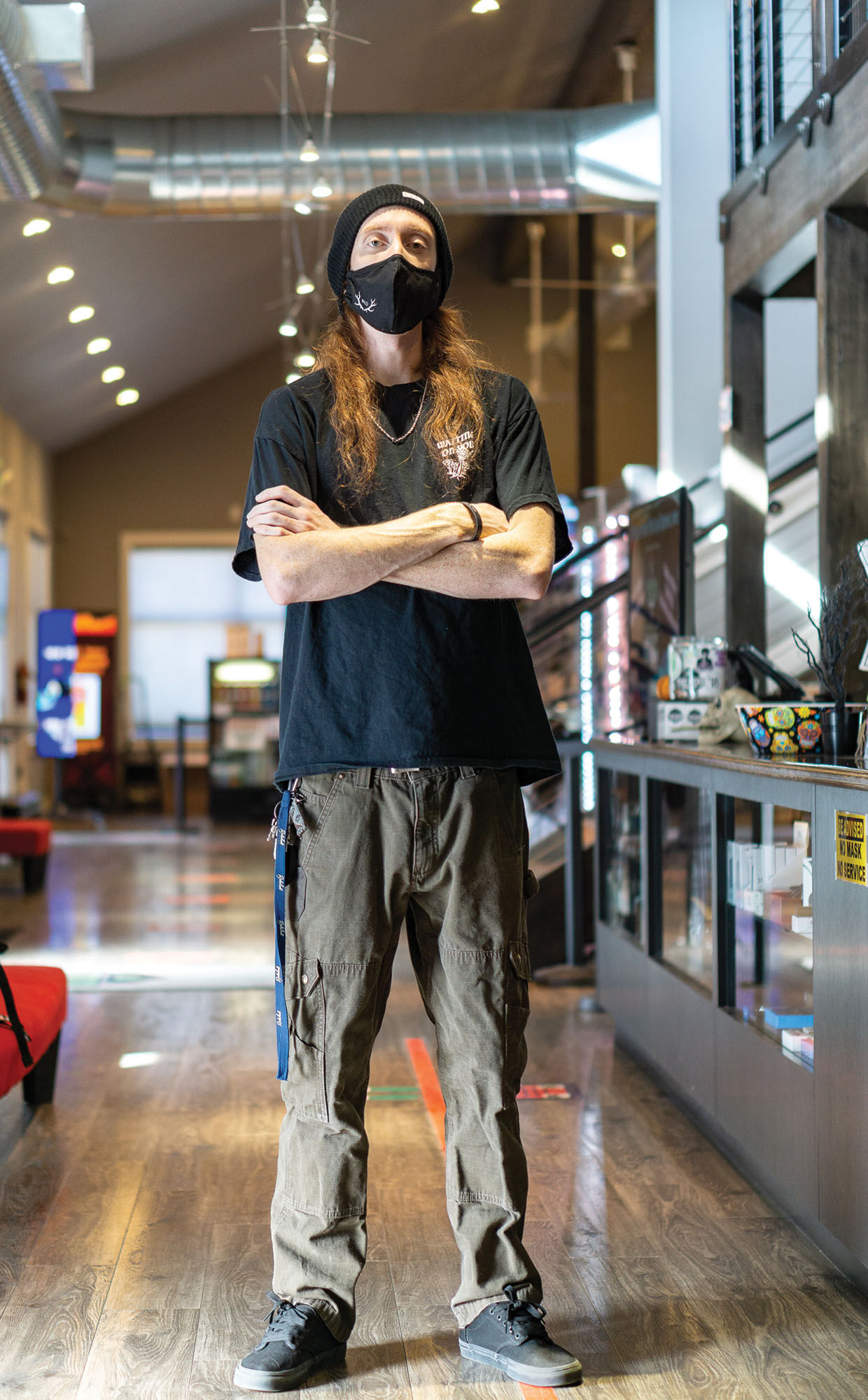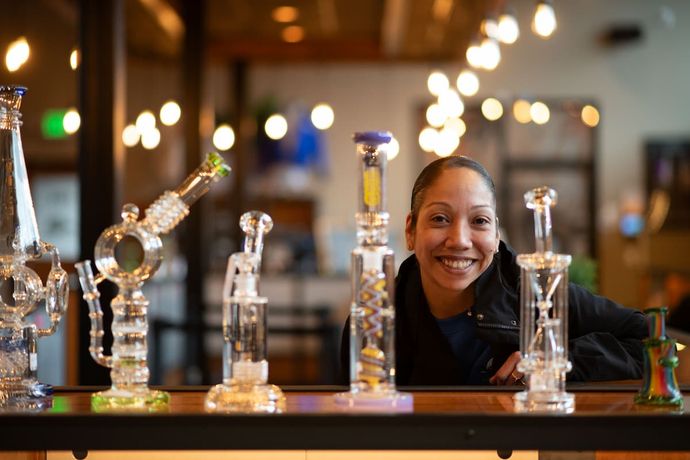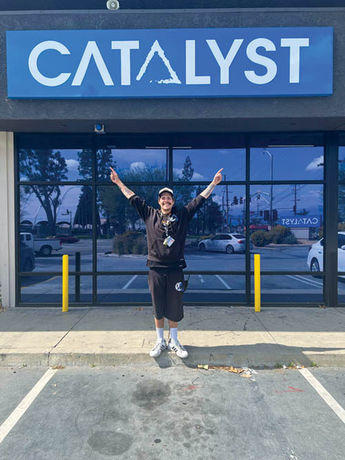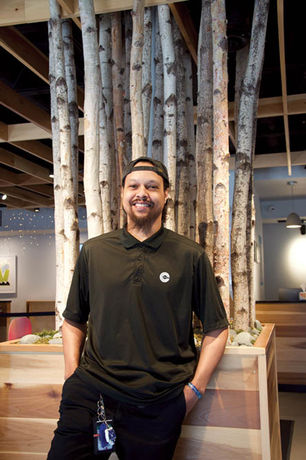Our Budtender of the Month is a no-joke OG veteran in the game. Currently working his magic at The Herb Center in Bend, this former Bend “Budtender of the Year 2018” is as experienced as they come in Central Oregon. Years after his origins in the beginning days of medical legalization, Rick Eslinger continues his legacy of guiding others towards the medicine they need – and his work spans beyond budtending. Dedication to breeding has helped Rick create such strains as Blue Mountain Majesty (Blueberry F4 x Malawi P4), Bohemian Fruit (Hash Fruit x Malawi P4), and Oregon Purple Kush (Pre-’98 Bubba Kush *Rick’s Cut* x Mendo Purple x Oregon Afgani).
How did you end up in the game?
I was born in Northern California in the Emerald Triangle, so it’s always been a part of my life. I moved to Bend when I was 16 and had a lot of medical issues and pain issues – as did my Mom, which led me to doing tons of research about the plant and looking for results. Eventually, I ended up becoming a caregiver to my mom once she got her medical card. After showing so much interest at the local dispensary and building a relationship, I ended up getting a job there as a budtender 12 years ago when I turned 18. I’ve been working in the industry for a number of different companies as a grower, breeder, and budtender ever since.
What have you learned in your years spent in the industry?
One of the first things I noticed after dealing with so many patients with a variety of medical issues, is that there is a need for more genetic diversity in the medical and recreational space. Many of the people I assisted required very diverse terpene and cannabinoid combinations, which were not found in commercial varieties after testing. After I had educated myself more on cannabinoids and terpenes, it became my goal to create more variety through breeding new genetic lines. Basically, the market is lacking a diverse variety.
Can you explain in more detail what you mean by lack of genetic diversity?
For example, the industry tends to follow sort of a hype train, so the newest, most sought-after genetics get grown the most – and therefore, these genetics get bred more and less new genetics are introduced. So, what we find is a lot of new varieties that are all related. Sisters, mothers, cousins, close relatives genetically. For example, you have Sunset Sherbet – which was very, very popular in its time. The very next strain to follow that same hype was Gelato – a backcross to the original parents of Sunset Sherbet. This potentially bottlenecks terpene and cannabinoid profiles. So this strain is used in the next hybrid and that hybrid is used in the next hybrid, and we end up with a very small pool of genetics.
How have you gone about bringing the genetic variety you wish to see?
I started small doing little projects in my grow space at home, growing out my crosses, and seeing what combining different genetics would result in. After many years of trial and error (mostly error), I found that stable genetics were required if I wanted to create variety in a reasonable amount of time. Over the years I hunted and acquired a few genetic lines that I was excited to work with, and in 2018 began a breeding project with a local recreational farm. We used African and Pakistani landrace genetics as our main parents and crossed these with many ‘90s and early 2000s varieties. Our goal was to find genetic diversity, which we did. Since then the farm continues to produce these varieties for the recreational market, and myself for my own personal use. I’m always striving to create the next variety for myself and my community, which has always been my passion and goal.
As someone with as much experience as you, I’m sure a lot of companies would be eager to hire. What made you choose to work at The Herb Center?
The Herb Center always seemed like a very fluent, well ran and clean establishment, with good knowledgeable staff and a focus on variety and cost-effectiveness. In the short time I have been working here, I’ve found it to be a healthy work environment with a kind staff.
What are the keys to being a successful budtender?
The biggest part for me would be being non-bias, and always trying to put yourself in other people’s shoes and see things from their side. Also, never take anything personally. People have different views and experiences, and you want people to feel like you are there to help them and not judge them.










